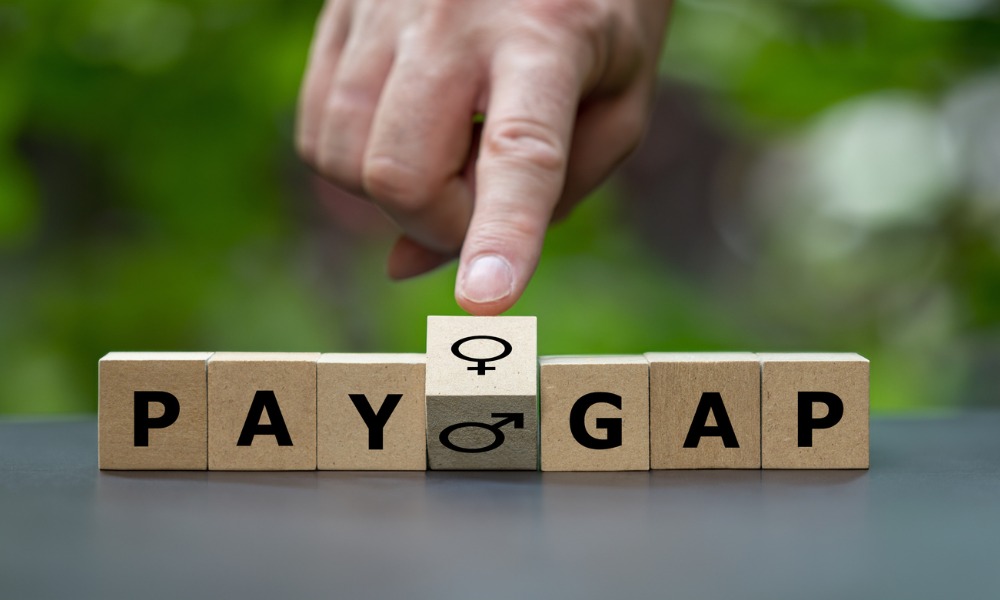World's largest HR association faces backlash from members, HR professionals

The largest human resources association in the world has decided to remove "equity" from its primary diversity program, sparking outrage among numerous talent managers online, who labeled the move as “backwards,” “shameful,” and “cowardly.”
The Society for Human Resources Management (SHRM) announced that it will now use the acronym “I&D” — standing for inclusion and diversity — and will exclude the “E” from its former “IE&D” framework. The move follows it reversing the letters of DE&I following political pushback, and Supreme Court decisions in the US.
"By putting inclusion first, we aim to address the existing flaws in DE&I programs, which have caused societal backlash and increased polarization," the organization stated on LinkedIn. SHRM emphasized its continued commitment to promoting equity within its "inclusion" strategy.
In Canada, a number of universities and businesses already lead with “equity” - Ivey Business School, Hockey Canada, University of Calgary and McGill University all use EDI, and it would appear that managers throughout the country prefer EDI to DEI in a title: Linkedin shows double the number of Canadian managers who put equity first in their title.
Conservative circles in US opposed to ‘DEI’
SHRM’s decision reflects a trend among hiring managers who have previously supported workplace diversity but are now moving away from DEI. Opposition to these initiatives in some countries has intensified over the past year, particularly from conservative circles in the US, with presidential candidate Donald Trump promising to effectively abolish DEI if elected in November.
The backlash against DEI is part of a broader cultural conflict in many countries. Conservative activists have reframed DEI initiatives as discriminatory against white individuals, particularly white men. Legal challenges are being brought against DEI actions, citing civil rights laws meant to protect historically disadvantaged groups to attack programs that benefit these same groups.
The US Supreme Court's decision last June, which banned universities from considering race in admissions, marked a significant victory for this movement. Additionally, nine states, including Alabama, Florida, and Texas, have passed laws restricting DEI efforts at state organizations.
Companies like Best Buy Co. and Johnson & Johnson have also faced criticism for their diversity efforts, leading them to minimize or remove DEI mentions in corporate documents. Last month, Tractor Supply Co. announced it would eliminate DEI positions after being targeted on social media by a conservative influencer, and Starbucks has quietly removed DEI requitements from some management bonuses.
Backlash against SHRM’s move with DEI
The decision by SHRM has sparked backlash from many of its members. A LinkedIn post announcing the change received well over 800 comments, mostly from HR professionals criticizing the organization for yielding to external pressure.
SHRM CEO Johnny Taylor Jr. mentioned that the term "equity" is often misunderstood and hinders productive discussions about creating inclusive workplaces.
"There’s no common agreement about what it means," Taylor told Bloomberg. He noted debates over whether to focus on equity of opportunity or equity of outcome for diverse employees. "We found that we’re spending all our time debating acronyms and definitions instead of focusing on our real objectives."
SHRM claims to represent about 340,000 members in 180 countries, affecting the lives of over 362 million workers and their families. The group not only sets industry best practices but also lobbies for legislation on issues like benefits policy, hiring, immigration, and taxes. Additionally, it offers its own certification programs often subsidized by companies for their employees.
This isn't SHRM's first change to its diversity acronyms. About a year ago, amid lawsuits against companies for allegedly discriminatory programs, SHRM revised its DE&I policy to IE&D. Taylor described the shift in September, calling inclusion "the most crucial yet toughest to implement" element.
Petition circulates against SHRM
SHRM's reasoning has been criticized by a wide range of professionals. “How then can SHRM say let's be civil to one another and in the next breath say we are going to focus only on Inclusion and Diversity? How can the expectation be civility when folks are DAILY experiencing blatant inequities in the workplace?” wrote Ebony Wilkins from Cornell University.
“I'm supposed to talk nice...be nice to you while you have your privileged foot on my neck? That is a ridiculous expectation and offensive to those who are literally fighting for their lives. All for civility but never at the expense of equitable treatment and standing for what's right!”
Nearly 400 individuals who have signed a petition urging HR professionals to cancel their SHRM memberships. The petition also accused SHRM of prioritizing "corporate interests over employee well-being" in its advocacy and policies.
Here in Canada, Scotiabank has been successful with its allyship approach to diversity.
“Scotiabank bankers in their engagement ratings tell us that a sense of belonging is a priority,” Meigan Terry, chief sustainability, social impact and communications officer at Scotiabank told the Financial Times. “And our focus on allyship has been a differentiator for us as an employer of choice.”
Allyship is particularly helpful in that it invites people who are not members of any particular group to ally with those from another group – to help a common cause.
Why diversity programs fall short
In their article for the Harvard Business Review, “Why Diversity Programs Fail," Frank Dobbin and Alexandra Kalev give another reason why, perhaps, some companies fall out of love with DEI.
Research indicates that conventional approaches, such as mandatory diversity training, hiring tests, and grievance systems often fail or backfire, activating biases rather than reducing them.
Studies show that these programs can lead to resentment and resistance among managers. More effective strategies, the authors argue, involve engaging managers in solving diversity issues, fostering intergroup contact, and promoting social accountability. Programs that have shown success include targeted recruitment, mentoring, self-managed teams, and diversity task forces.
The Dobbin and Kaleve outlines several problems with DEI initiatives:
- Conventional Methods: Mandatory training and hiring tests often worsen biases.
- Effective Strategies: Engagement, intergroup contact, and social accountability yield better results.
- Successful Programs: Targeted recruitment, mentoring, and diversity task forces.
Detailed findings of their research also find that:
Traditional approaches fail:
- Diversity Training: Often leads to short-term compliance without long-term behavior change.
- Hiring Tests: Tend to be applied inconsistently, disadvantaging minority candidates.
- Grievance Systems: Can result in retaliation and are often underused, creating a false sense of security.
Alternative strategies:
- Engagement: Involving managers in diversity initiatives fosters personal investment and accountability.
- Intergroup Contact: Programs that increase interaction between different groups help reduce biases.
- Social Accountability: Transparent practices and public reporting can drive behavioral change.
Effective programs:
- Targeted Recruitment: Actively seeking diverse candidates leads to higher diversity in management roles.
- Mentoring: Provides support and development opportunities for minority employees, fostering career advancement.
- Self-Managed Teams: Encourages collaboration across diverse groups, promoting inclusivity.
- Diversity Task Forces: Regularly reviewing diversity metrics and developing solutions to identified issues.








